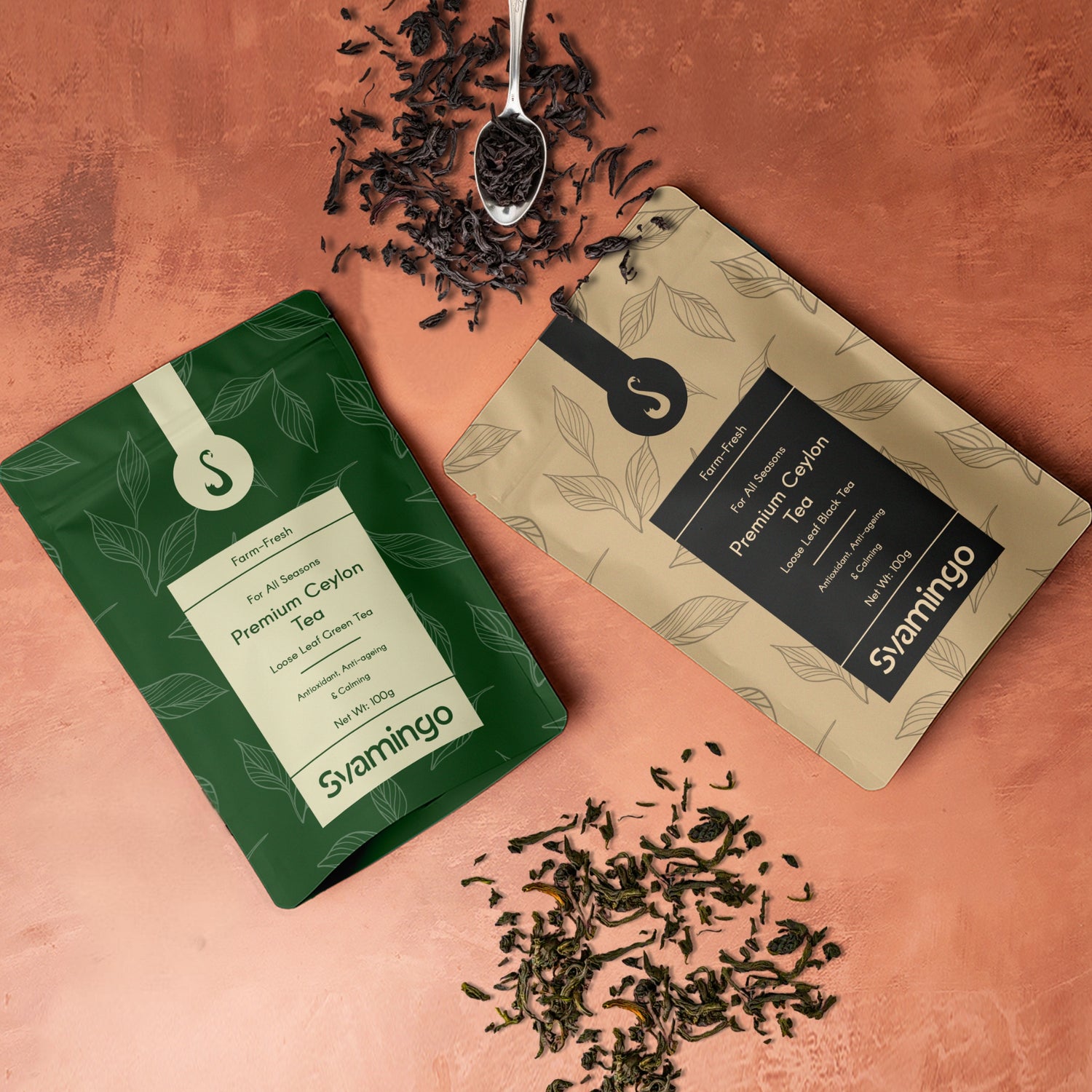Tea vs Coffee: How To Manage Everyday Caffeine?
by Harisingh Khedar
on Jan 28, 2025

If you are a regular coffee drinker, it is important to monitor—or at least be aware of—how much caffeine you should consume daily to stay within your healthy limits. Personally, I can't resist having at least a cup of coffee every morning, no matter the circumstances! But whenever I exceeded that limit, I found myself feeling jittery and restless throughout the day. Do you feel the same way? Are you as ‘addicted’ to coffee as I am? Well, we believe that you can keep your daily caffeine intake in check with small adjustments to your routine. Read on.

First, it's important to recognize when you're exceeding safe caffeine limits. So, what amount of caffeine is considered unhealthy?
Typically, a 8oz cup of coffee contains about 100 mg of caffeine. If you are consuming three or more cups daily, you are already at risk of exceeding the recommended daily limit of 400 mg per day. Furthermore, the recommended daily limit of 400 mg caffeine applies to healthy individuals, which means if you are currently facing any of the below conditions among others, we suggest staying extra cautious with your caffeine intake and look for alternatives:
1. Highly sensitive to caffeine (you’ll know it!)
2. Suffering from sleep-related disorders
3. Dealing with high blood pressure issue
4. Dealing with heart-related conditions
5. Planning for pregnancy or currently pregnant
Speaking of alternatives, considering low-caffeine tea or caffeine-free tea into your daily routine can be a great start!
Tea comes in various types, each with different caffeine levels. A cup of tea typically contains between 20 to 50 mg of caffeine, which is significantly lower than that of coffee. The caffeine content in tea depends on several factors, including the type of tea, processing methods, and its origin. For example, pure green tea leaves generally have lower caffeine levels compared to processed black tea or other green tea variants such as matcha tea.
We recommend embracing low-caffeine black tea and low-caffeine green tea in your daily routine as it is ideal for those who still want some caffeine but in moderate amount.
Both green tea and black tea are rich in the amino acid L-Theanine, which promotes a relaxed yet alert state of mind. This can help prevent the jitteriness often experienced with coffee consumption. I personally felt the difference by limiting my daily caffeine intake and building a solid all day routine with tea.
You can also consider decaffeinated green tea (or caffeine-free green tea) and decaffeinated black tea (or caffeine-free black tea) if you wish. However, we don't suggest to go that far for the following reasons:
1. Start your journey with low caffeine tea to meet your basic caffeine needs
2. Decaffeinated teas still have marginal caffeine albeit in very low amount
3. Decaffeinated teas lack rich antioxidants which are naturally preserved in loose leaf tea

If you are looking to buy low-caffeine green tea, we highly recommend Svamingo Premium Ceylon Green tea. I have consumed Ceylon green tea regularly for over an year now, and one of the main inspiration for us to bring Ceylon green tea on our platform are its after effects of balanced calmness and alertness. Our premium Ceylon black tea is another great alternative if you want to build a solid all day routine with low-caffeine black tea in your routine.








